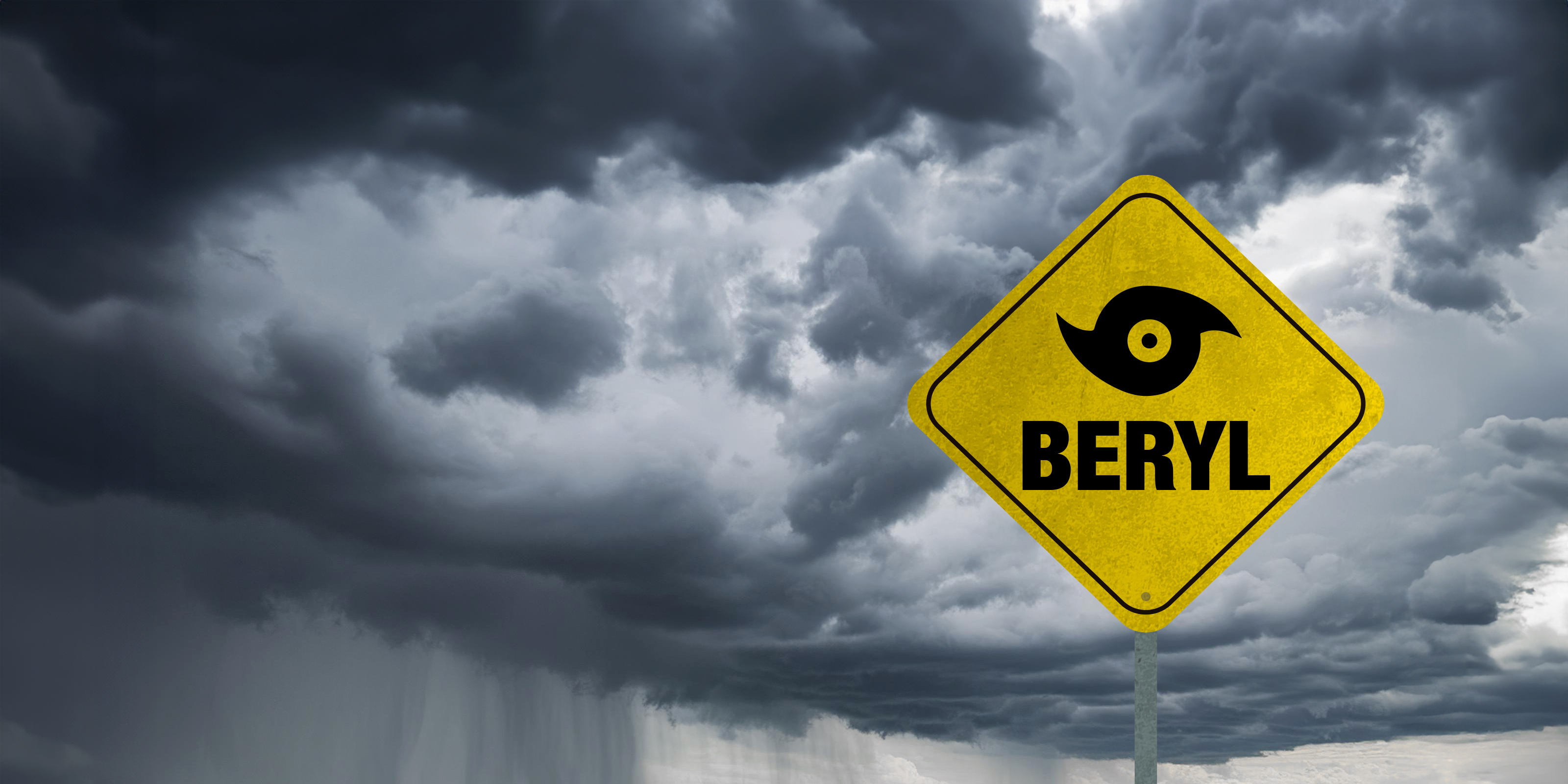
The first hurricane of the 2024 Atlantic Hurricane season, Hurricane Beryl, made landfall on the Gulf Coast of Texas early on July 8, 2024, as a Category 1 hurricane before weakening to a tropical storm as it moved across the state. With it came damaging winds of 80 mph, flash flooding and a life-threatening storm surge — leaving 2.2 million without power in the Houston region. Additionally, the National Weather Service has issued a tornado watch for parts of Arkansas, Louisiana and Texas, as the storm travels inland.
Beryl is exceptional in two ways.
First, Beryl is the earliest Category 5 hurricane observed in the Atlantic basin on record and only the second Category 5 hurricane to occur in July. On average, the first major hurricane (Category 3 strength or higher) does not form until September 1, meaning Beryl developed exceptionally early, according to the National Hurricane Center.
Second, Beryl has rapidly intensified. Starting as a weak tropical depression on June 28, 2024, Beryl became a destructive Category 4 hurricane within just 48 hours. And while rapid intensification is common for major hurricanes, the timing is not. "Beryl is the earliest storm to ever undergo that kind of rapid intensification," according to NPR. "Usually, rapidly intensifying major hurricanes don’t form until later in the summer and the early fall, when water temperatures in the tropical Atlantic peak and hurricane activity is at its highest."
Beryl's early development and rapid intensification are due to near-record warm ocean temperatures caused by human-caused climate change, the development of La Nina conditions in the Pacific, reduced Atlantic trade winds and less wind shear, according to NOAA. Earlier this year, NOAA predicted an above-normal Atlantic hurricane season, forecasting a range of 17 to 25 total storms, with 8 to 13 forecast to become hurricanes.
Do you have the right insurance?
As hurricane season continues, home insurance becomes increasingly important. As a first step, make sure you have adequate coverage before a storm hits. In addition to comparing different insurance providers and policies available, you may want to look into additional coverage options.
For a good starting point, use our widget below — powered by Bankrate — to compare home insurance rates today.
For full coverage against hurricane damage, you’ll need a flood insurance policy. No, flooding is not covered by standard home insurance, although lenders may require it if your home is located in a high-risk area. According to Policy Genius, flood insurance has an average cost of about $888 per year, but how much you’ll pay will ultimately depend on location and whether you opt for federal or private coverage.
Wind can also do a lot of damage to your home. And while wind and wind-driven rain are covered by a standard homeowners policy, many charge separate wind deductibles, which are based on a percentage of your coverage and not a fixed dollar amount. For example, if your home is insured for $500,000 with a 5% wind deductible, and you have $30,000 worth of roof and siding damage from high winds, you’ll be responsible for $25,000, with your insurance covering only $5,000.
Your risk for flood and wind damage can be found by going to Realtor.com or Redfin. Type in your address, and on your property's summary page, scroll down to the "environmental risk" or "climate risk." You'll see an assessment of your home's flood, wind, fire and heat risk on a scale from one to ten, where ten is the highest risk. These assessments are based on data by First Street.
Another thing to consider? Your Tree, Your Neighbor’s Property: Whose Insurance Pays?






